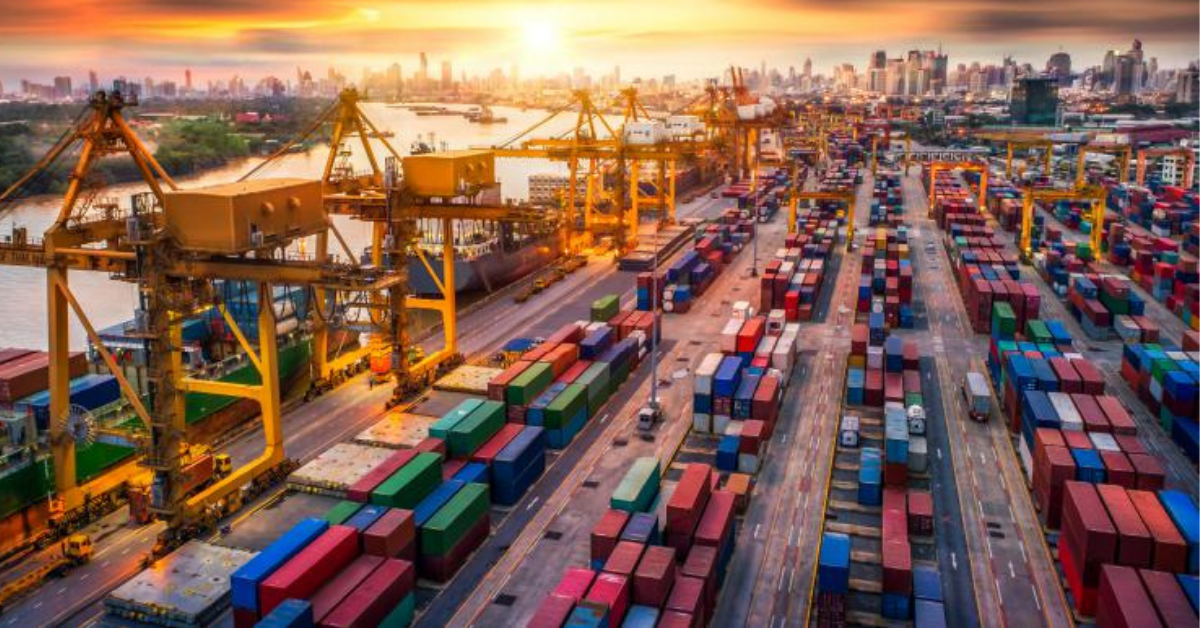
Rima Azar is the General Manager at SEASKY SERVICES, a Lebanese freight forwarding company that has been her family’s business since 1929, and a member of QOOT Cluster. Rima attended the ‘Helping SMEs Build Resilience’ training sessions launched by Berytech following COVID19 and the consecutive crisis that hit Lebanon, heavily impacting businesses including SEASKY SERVICES.
We caught up with Rima to talk about the impact of the economic collapse, the Beirut Blast and the pandemic on her business, what were the strategies she put in place to face these challenges and how the training sessions helped guide her decision-making process and implementation.
Q: What is the solution that Sea Sky Services offers?
A: SEASKY SERVICES SARL is a freight forwarding company that has provided shipping solutions and services by air and sea since 1995, from everywhere to anywhere in the world. SEASKY SERVICES has branched out from a customs-clearing family business that started in 1929. The in-house customs clearing enables us to offer a door-to-door service for all imports and export shipments to/from Beirut port and airport. SEASKY SERVICES is a member of the biggest network of independent freight forwarders in the world, WCA, with more than 8000 partners around the globe.
I started working in this industry totally by chance, just after graduating from AUB, and it was love at first sight. I was lucky to start my career with international companies, so my mentors at one of the oldest shipping companies in Europe, LLOYD TRIESTINO & Adriatica helped shape my managerial skills at an early age. This, in addition to my continuous thrive to learn more through other university degrees, certificates, workshops, and conferences transformed me from a manager to a leader.
Everyone who imports or exports can benefit from our services, especially B2B. In shipping, every day is a challenge and it’s a continuous learning process, that is why it’s important for the client to choose someone with experience and has access to global info and networks.
Q: How did the economic crisis, Covid-19, and Beirut blast impact your work, your progress, your vision, and your company’s mission?
A: During the past 2 years all Lebanese people, and especially the private sector has and is still facing many challenges. The first hit we faced was in October 2019 when the banks we work with stopped the transfers to our agents abroad. We had many unpaid statements of accounts that were due at the end of October and the beginning of November and so we had to deposit fresh dollars in the banks to avoid losing our international connections and agents
The 4th of August blast was a more drastic hit since our offices are near the port area and our offices were seriously damaged but thank God no one from our team was injured. We repaired all the damage, and our office was operating after one week without any external support.
Covid-19 presented a significant challenge for us as well since the shipping industry was severely affected globally especially when all countries started extending the lockdown periods which resulted in the accumulation of full containers at the ports, and this resulted in the scarcity of empty containers worldwide. The freight rates have increased by more than 200% in 2021 globally.
This, coupled with the Lebanese economic crisis has resulted in a big drop in the number of imported goods and accordingly decreased our sales turnover tremendously.
Still, as problem solvers, we had to adapt to the challenging situation.
Q: What did you do to keep on going? What were the key measures and strategic decisions that you took to overcome the above situations?
A: We implemented drastic quick changes. Some steps were taken directly at the beginning of each crisis, and some needed planning and had a timeline for implementation.
We had to drop 50% of the clients that didn’t accept to pay us in cash for imported shipments. It was a very hard decision and was faced with lots of resistance from the sales team, but “cash flow” was and still is an essence for our survival.
The important step we took was to focus on increasing the volume of exports, in order to help the economy. Therefore, we opened a new department called the EMC department (Export Management Consultancy). It is the first logistics consultancy department in Lebanon that helps exporters in being export compliant, in product conformity, and in finding global strategic partners by penetrating new markets.
The 4th of August blast had a severe impact on our mental health and so we as a team had to channel our anger and frustration in a positive productive way. So exactly on the 6th of August and after a zoom meeting with the team, we decided to dedicate 25% of our work time to get and ship donations.
We reached out to all our agents around the world, and I used all my personal international connections, and we were able to generate and ship for free more than 100 tons of food, clothing, diapers, shoes, quilts bed coverings, laptops, and electrical appliances in donations.
Concerning Covid-19, social distancing required remote work which we directly implemented with the assistance of our IT partners, and work was going smoothly among departments, and with the customers, agents and suppliers. Slack was a great advantage during this crisis, we’ve been using it since 2018, so the pipeline was not interrupted. Even though our software is not a cloud, we were still able to access the server through VPN, and the mail through webmail and Microsoft 365.
What we realized was that all the companies and SMEs shifted their business models and went into the digitalization transformation caused by Covid-19. We had to completely shift the company’s overall strategy and go digital.
Q: Why did you attend the ‘Helping SMEs Build Resilience’ Training? What were you hoping to get out of it?
A: Even though I have worked in this profession for a very long time, there is always something to learn and discover. These training sessions were very beneficial, especially the ones related to digitalization. Lots of insights, tips, and practical advice were given during the sessions and the interactive workshops presented many solutions.
Q: What were the challenges that you were facing that you hoped to tackle through what you learned in the training?
A: The biggest challenge while adapting to the circumstances mentioned previously was to adopt the right steps for our digitalization. This training helped us overcome the concerns and difficulties, for example, we had many questions about which CRM to implement and how to coordinate the workflow among departments.
Moreover, many workshops managed to shift our mindset to find opportunities in the crisis.
I was impressed by how I learned that “being ready to keep up with shifting customer demand means treating planning and budgeting as a collaborative daily exercise”, and that “the key to a strong working relationship lies in shared language and success metrics”.
Q: How did the training impact your decisions? What have you been able to achieve because of it?
A: The sessions provided me with a fresh perspective, introduced me to new trends, and allowed me to consider new decisions for the future.
Social media and their analytics workshops were the catalysts for me to recruit lead generation employees and hire two new ladies in the marketing department.
We are now rebranding Sea Sky services and we are more active on social media to increase awareness of our brand.
Q: What are the opportunities that you are looking at for your business, and what do you need to get to them?
A: The opportunities are to increase exports from Lebanon, and to find global strategic partners that can help Lebanese products access new markets. In order to do that, Sea Sky Services has opened an office in the United Kingdom, since the UK market is a huge market interested in importing from new markets after Brexit.
After Covid-19, the supply chain has shifted from a linear one to a circular one. The European Green deal will affect a lot the flow of products among countries and so our focus right now in the EMC department is to increase the awareness of the Lebanese exporter and how to change the local mentality to ride this wave.
We have to offer sustainable, recyclable, organic products and packages in order to penetrate the EUROPEAN markets.
The recent political incidents proved that we must find markets outside the Mena region, we must implement an export strategy and we must work all in clusters and in teams and not as individuals
Q: How do you see the future of your business?
A: We are a growing business and despite all the challenges we will always find ways to improve our services and increase our global presence. Two weeks ago, we became a member of a global logistics network, All World Shipping Corp. (AWS) which will be an added value for our exports to the USA.
I believe that our EMC department will also help many SMEs in their export journey and will have a huge social impact.
Abou the program
The ‘Helping SMEs Build Resilience Program’ was launched by Berytech under The Rapid Response and Recovery Programme, led by Youth Business International (YBI) and funded by Google.org, to support underserved micro, small and medium businesses to respond to the COVID-19 crisis. Learn more about the program: https://berytech.org/programs/helping-smes-build-resilience-program/









